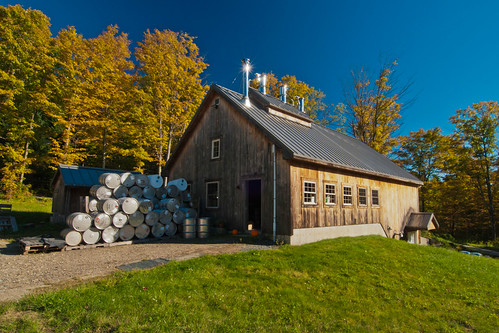
What has 40 calories per tablespoon, contains potassium, manganese, magnesium, phosphorus, iron, Vitamins B2, B5 and B6, the same calcium levels as whole milk, and is completely natural and organic?
Chances are maple syrup wasn’t the first food to come to mind, but it’s true! Real maple syrup has less calories per tablespoon than canola oil, contains 9 essential vitamins and nutrients, and when made properly, it is completely natural, organic and additive free. The benefits to maple syrup are greater than the collection of healthy nutrients inside the product. Maple syrup is good not only for a hot stack of pancakes, but also for America’s rural economy.
In Vermont, as much as 1.3 million gallons of Maple Syrup is produced per year. This accounts for 40 percent of the maple syrup produced in the United States, making Vermont the #1 maple syrup producer in the nation.
With such high demand, Vermont maple syrup producers are finding efficient ways to collect more sap and use less energy to concentrate the syrup. Reverse osmosis machines, energy efficient evaporating equipment, vacuums and pipelines are just a few ways Vermont maple syrup producers are improving maple syrup production.
USDA Rural Development has invested $1,186,241 in 111 separate maple syrup production projects since 2007 through the Renewable Energy for America Program (REAP). REAP is a grant and loan guarantee program that provides grants to cover 25% of energy-efficiency improvement project costs and loan guarantees to cover the remaining balance through the recipient’s lender.
Burr Morse of Montpelier, Vermont used a $9,589 REAP grant to purchase equipment that increased Morse Farm Maple Sugarworks’ energy efficiency by 60 percent. Burr now uses woodchips to boil his sap, and the investments this grant helped incentivize have conserved 36 tons of woodchips per sugaring season for the small syrup producer.
By investing in Vermont’s maple syrup industry, USDA is not only supporting delicious breakfasts, but also helping rural areas successfully be the production headquarters for a global market without leaving a detrimental carbon footprint on the planet.



